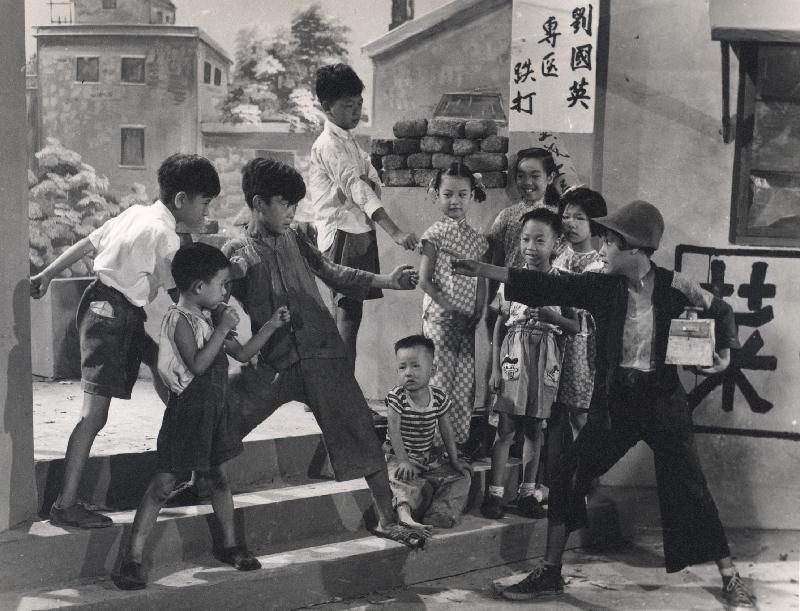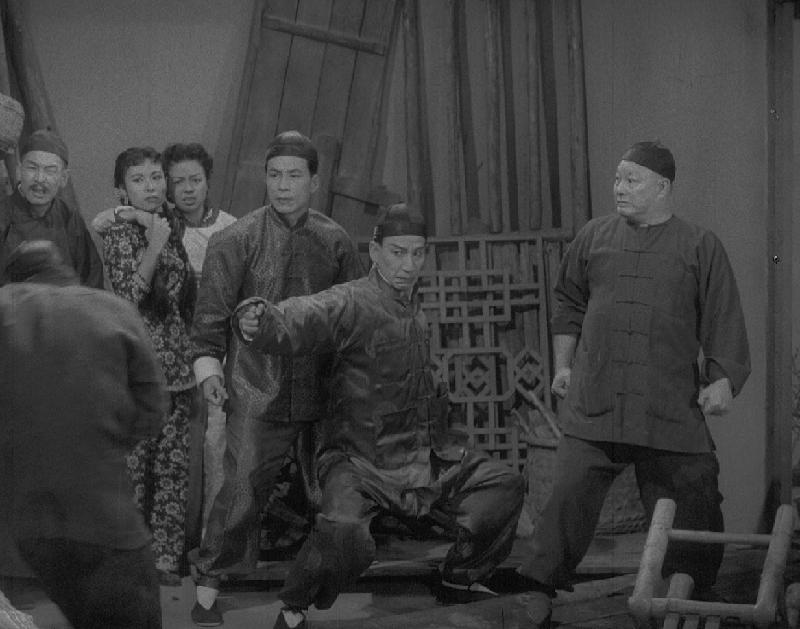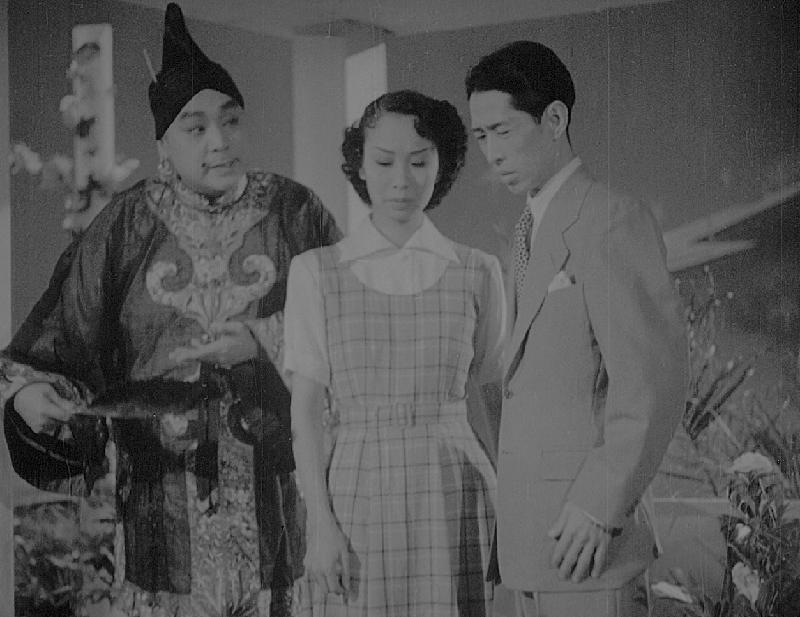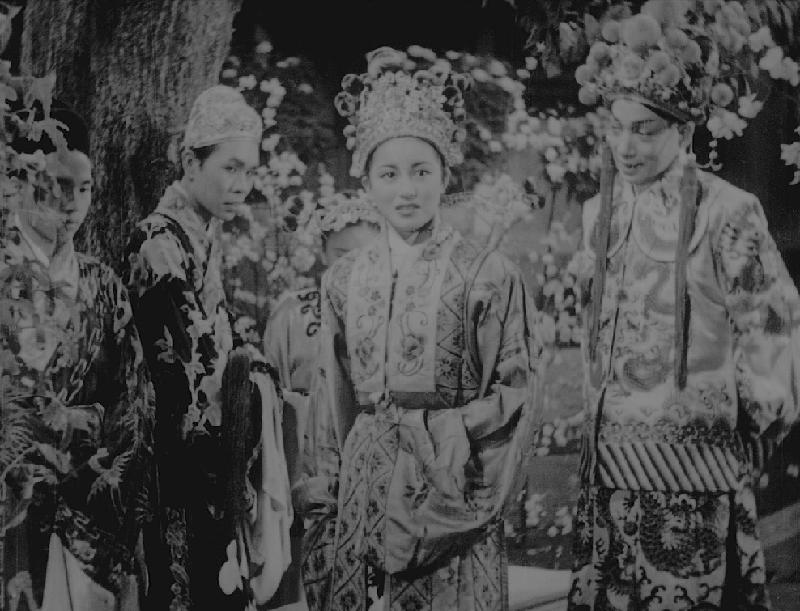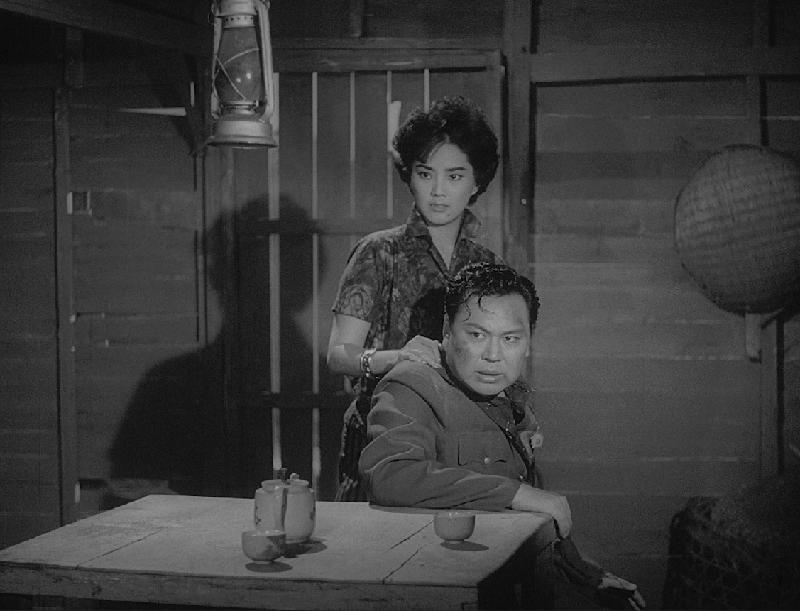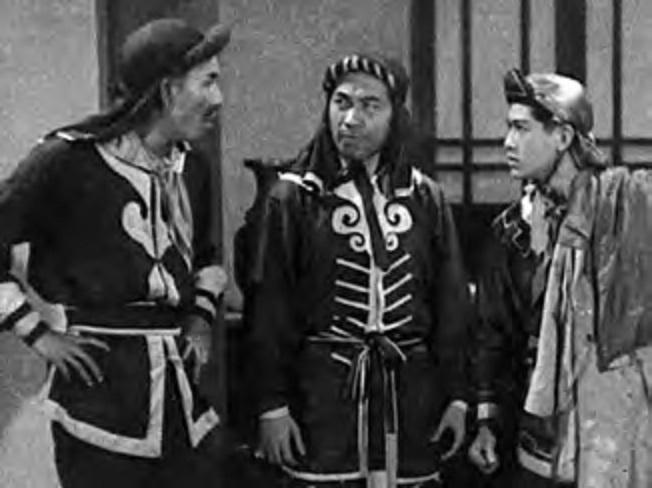To mark the 20th anniversary of the Hong Kong Film Archive (HKFA) of the Leisure and Cultural Services Department, the HKFA will present "Time After Time" under the "Archival Gems" series as the first celebration programme. From July 5 to March 28 next year, 16 movies produced from the 1940s to the 1960s that have been digitised from sole existing copies or are never-before-screened versions will be played, allowing audiences to witness how culture is conserved through the HKFA's classics collection.
During his childhood, martial arts master Bruce Lee was already an emerging actor. Before he went to study in the United States in 1959, he had already made over 20 films in Hong Kong. Lee's performance as a child actor in "Blame it on Father" (1953) was widely praised. The scene in which he performs the Cantonese opera song "Robbing the Road to the Afterlife", the signature tune of his father Lee Hoi-chuen, is one of the most precious records of Lee as a child. Lee wears a Zhongshan suit for the first time in "Thunderstorm" (1957), a movie adapted from the classic drama of the same title. The film showcases his gentler side through his green and affectionate performance. To commemorate the anniversary of Lee's death on July 20, additional screenings of "Blame it on Father" and "Thunderstorm" will be held on July 19 and 20 respectively and these are truly not to be missed for his fans.
With the Wong Fei-hung films making up one of the most prolific film series, many audiences have seen Wong as the quintessence of justice. Featuring Kwan Tak-hing as Wong, both "How Wong Fei-hung Defeated the Tiger on the Opera Stage" (1959) and "How Wong Fei-hung Stormed Phoenix Hill" (1958) depict fights between Wong, the villains and other enemies. Kwan also successfully reflects Master Wong's boldness and compassion through his authentic martial arts skills as well as fluid and agile movements.
Sun Ma Si-tsang, the Cantonese operatic superstar, appeared in different sing-song comedies, showcasing his singing and comedic talents. "The Wrongly Accused Lover" (1951) features Sun Ma as a country boy who wants to earn a living in the city. He is later asked by a rich girl (played by Hung Sin Nui) to impersonate an opera star, teaching her classmates how to stage an opera and win a competition. In another comedy, "Cheung, the Dragon Boatman" (1952), Sun Ma plays the role of a street performer who specialises in the dragon boat style of music. Sun Ma monkeys around alongside co-star Leung Sing-por, and together the pair generate plenty of laughter.
Transgender performance used to be the norm on the opera stage. The palace comedy "The Ancient Beauty, Mang Lai-kwun" (1949) is the only movie co-starring Sit Kok-sin and Chow Kwun-ling. Chow, dressing as a man for the first time and singing in pinghou (male voice), plays the title character who runs away from a wedding. She masquerades herself as a man and later meets the Emperor (Sit) in the capital. In "Love in Dangerous City" (1955), the celebrated male "huadan" (female lead) actor Chan Fei-nung (Connie Chan Po-chu's father) first appeared on the silver screen as a beautiful princess. Also taking up the role as a screenwriter, Chan adapted his own signature opera elements into the movie, which fully demonstrates his skills in singing and gestures.
As a multi-talented writer, director and actor, Yeung Kung-leong produced many horror films. "The Dead Comes Alive" (1955) tells the story of a theatre troupe that stages a show at a haunted theatre and encounters an actor who is supposed to be dead. In "The Ghost Hero" (1956), Yeung reanimates the story of a vengeful phantom who always helps the needy. Yeung not only plays important roles in both movies, but also creates the creepy atmosphere through special make-up, mise-en-scène and chiaroscuro photography.
Lau Leung-wah, both an actress and a producer, established a sophisticated image through her movies. Lau stars as a spy in "The Tender Trap of Espionage" (1960) and plays a Chinese Robin Hood who robs the rich to help the poor in "Black Butterfly" (1960). Lau's beauty, wit and independence, together with the scripts written by the action maestro Chang Cheh, have made the movies more thrilling to audiences.
Tso Tat-wah's toughness and humility made him true to his Cantonese cinema ethos as a warrior. The wuxia saga "The Battle of the Peaks" (1953) features Tso as an accomplished martial artist who is dragged into an epic struggle that spans three generations. In "The Secret Agent 303" (aka "The Secret Agent and the Mysterious Gang") (1966), Tso is shaped as a Hong Kong superspy. He becomes Agent 303, who needs to uncover his enemies' conspiracy. The special weapons, mind games between agents and spies, and the series of action scenes are all designed with distinctive local features.
To cater for the ever-changing film market, female James Bond roles were created after the appearance of Hong Kong spy cinema. One of the best representatives of "Jane Bond" would be Connie Chan Po-chu. Her fearlessness and tenderness match the characteristics of a Robin Hood-like heroine who always stands with justice. In "The Female Chivalry" (1967), Chan is adopted by a rich family. She is determined to take revenge after learning that her biological father has been murdered. In "A Death Pass" (1967), Chan stars as an undercover officer who needs to probe into a series of murders that are all connected by a "Death Pass" left by the murderer. Chan, fighting both mentally and physically against the villains in both of the movies, reflects the free and independent image of women in the new era.
Some of the films will be accompanied by post-screening talks conducted in Cantonese. Hosts will include Shu Kei, Sam Ho, Lau Yam, Leonard Wong, Professor Yuen Siu-fai, Professor Chan Sau-yan, Lam Wai-ting, Dr Stephanie Ng, Joyce Yang, Matthew Cheng and Thomas Shin. Admission is free.
"The Tender Trap of Espionage" and "Black Butterfly" are in Mandarin with Chinese subtitles. The others are in Cantonese and without subtitles.
Tickets priced at $55 are now available at URBTIX (www.urbtix.hk). For credit card telephone bookings, please call 2111 5999. For programme details, please call 2739 2139 or visit www.filmarchive.gov.hk/en_US/web/hkfa/programmesandexhibitions/programmes/tat/index.html.
In view of the latest situation of COVID-19, special admission, ticketing and seating arrangements will be implemented for screening programmes held at the HKFA Cinema. Children aged under 12 must be accompanied by an adult. For details, please visit www.lcsd.gov.hk/CE/CulturalService/HKFA/en_US/web/hkfa/aboutus/openhl.html or contact the HKFA at 2739 2139.
Follow this news feed: East Asia






